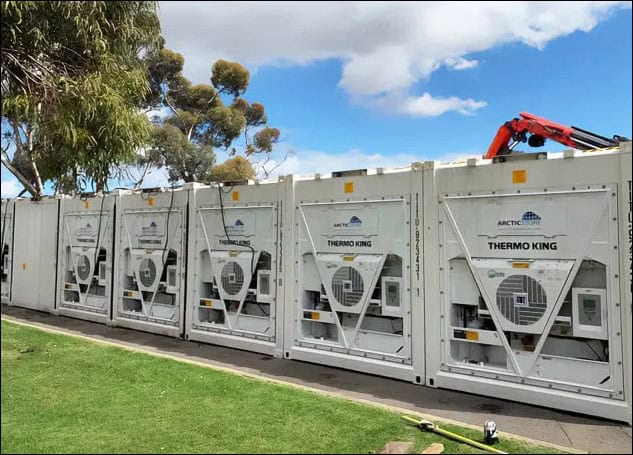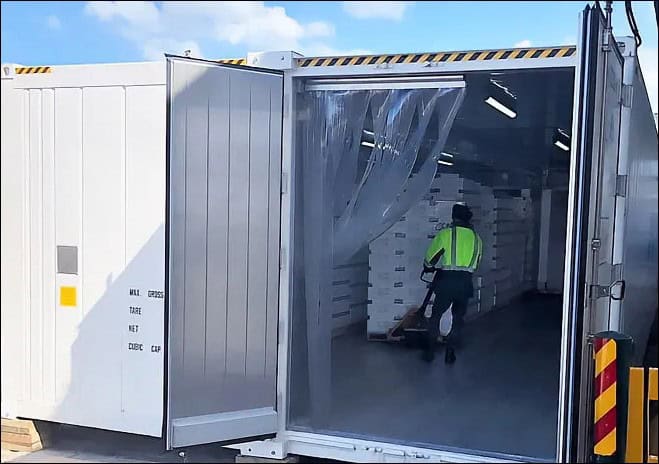Cool Solutions: The Growing Demand for Refrigerated Containers in New Zealand

The use of refrigerated containers in New Zealand is experiencing a notable surge as industries adapt to changing consumer demands and global trade requirements. These versatile units, also known as reefers, are crucial in preserving the quality of perishable goods during transport and storage. From agriculture to pharmaceuticals, businesses are finding innovative ways to incorporate refrigerated containers into their operations. This growing demand is not just a trend; it represents a shift toward efficiency and sustainability in various sectors. In this article, we will explore the reasons behind the increased popularity of refrigerated containers, their applications, and the opportunities they offer across industries in New Zealand.
The Importance of Refrigerated Containers in Agriculture
Agriculture remains one of New Zealand’s primary industries, contributing significantly to the country’s economy. The need to transport fresh produce, dairy, and meat products to both domestic and international markets has made refrigerated containers indispensable. These units provide controlled temperature environments, ensuring that perishable goods maintain their quality throughout the supply chain.
In recent years, the rise of export-focused agriculture has intensified the need for reliable cold storage and transport solutions. Refrigerated containers allow farmers and exporters to meet strict international standards, extending shelf life and reducing waste. For instance, kiwifruit, one of New Zealand’s top exports, requires precise temperature control during transit to maintain its freshness. Similarly, meat products destined for overseas markets rely heavily on these containers to meet health and safety regulations.
With the global demand for sustainable practices, refrigerated containers also support the shift toward reducing food waste. By preserving products for longer periods, they help minimize losses during transit, making them an eco-friendly solution for the agricultural sector.

Expanding Role in the Pharmaceutical Industry
The pharmaceutical industry is another sector driving the demand for refrigerated container in New Zealand. As the country becomes more integrated into the global pharmaceutical supply chain, the need for temperature-controlled logistics has grown exponentially. Many pharmaceutical products, such as vaccines, biologics, and certain medicines, are highly sensitive to temperature fluctuations.
The COVID-19 pandemic highlighted the critical role of refrigerated containers in maintaining vaccine integrity. Transporting vaccines across regions required precise temperature controls, and refrigerated containers proved to be an efficient and scalable solution. Beyond vaccines, the rise of biotechnology and personalized medicine has increased the demand for specialized cold storage and transport systems.
In New Zealand, pharmaceutical companies are leveraging refrigerated containers to ensure compliance with international Good Distribution Practice (GDP) guidelines. These containers not only protect the efficacy of the medicines but also build consumer trust in the products. The pharmaceutical sector’s reliance on refrigerated containers underscores their importance in safeguarding public health and supporting industry growth.
Supporting the Seafood and Dairy Sectors
New Zealand’s seafood and dairy industries are pillars of its export economy, and refrigerated containers play a pivotal role in their operations. Seafood, such as fish and shellfish, requires immediate and continuous cold storage to prevent spoilage and maintain its quality. Similarly, dairy products like butter, cheese, and milk powders must be transported under strict temperature conditions to meet the expectations of global markets.
Refrigerated containers have revolutionized these industries by offering mobile and flexible cold storage solutions. Instead of relying solely on fixed facilities, businesses can use refrigerated containers to expand their reach, accessing remote areas or responding to seasonal demand fluctuations. For example, during peak fishing seasons, the seafood industry can deploy additional refrigerated containers to manage increased catches efficiently.
Moreover, the dairy sector benefits from the ability to store products temporarily before shipping them in bulk. This flexibility helps exporters manage inventory and optimize logistics, ensuring timely delivery to international buyers. The dependability of refrigerated containers has solidified their role in enhancing the competitiveness of New Zealand’s seafood and dairy exports.
Refrigerated Containers in Urban Development and Retail
The applications of refrigerated containers are not limited to exports; they are increasingly being used in urban development and retail settings across New Zealand. Supermarkets, food vendors, and event organizers are incorporating refrigerated containers into their operations to meet the growing demand for fresh and safe products.
In urban areas, refrigerated containers are being repurposed as temporary cold storage units for pop-up markets and food festivals. These containers provide a convenient way to store perishable goods, allowing businesses to operate efficiently without investing in permanent facilities. Retailers, especially those dealing with organic or farm-to-table products, also use refrigerated containers to maintain freshness from the supplier to the store shelf.
Additionally, urban developers are exploring innovative ways to integrate refrigerated containers into mixed-use projects. For instance, food hubs and distribution centers equipped with refrigerated containers are being set up to support local farmers and small businesses. This approach not only reduces transportation costs but also strengthens local food systems, ensuring that fresh products are available to urban consumers.
Environmental Advantages of Refrigerated Containers
Sustainability is a growing concern for industries worldwide, and refrigerated containers are emerging as a solution that aligns with environmentally conscious practices. Traditional cold storage facilities consume significant energy and require substantial infrastructure investments. Refrigerated containers, on the other hand, are more energy-efficient and portable, making them a greener alternative.
Many refrigerated containers are now equipped with advanced technologies that minimize energy consumption. For example, solar-powered units and those with energy-efficient refrigeration systems are reducing the carbon footprint of cold storage operations. These innovations are particularly relevant in New Zealand, where there is a strong emphasis on adopting sustainable practices across industries.
Moreover, refrigerated containers support the transition to a circular economy. When not in use for transport, they can be repurposed for storage or even as components in modular building projects. Their adaptability and durability make them a long-term investment that aligns with sustainability goals. As businesses strive to reduce their environmental impact, the demand for energy-efficient refrigerated containers is expected to grow further.
Meeting the Needs of Small and Medium Enterprises (SMEs)
Small and medium enterprises (SMEs) in New Zealand are increasingly turning to refrigerated containers to expand their capabilities. Unlike large corporations with access to extensive cold storage infrastructure, SMEs often face challenges in managing perishable goods. Refrigerated containers provide an affordable and scalable solution, allowing smaller businesses to compete in industries where temperature control is critical.
For example, boutique food producers can use refrigerated containers to transport their products to markets without compromising quality. Similarly, small-scale exporters can invest in refrigerated containers to meet international standards without incurring excessive costs. The flexibility of these units enables SMEs to seize growth opportunities and adapt to changing market dynamics.
The availability of refrigerated containers for hire or purchase has further democratized access to this technology. By lowering the barriers to entry, these containers empower SMEs to participate in New Zealand’s export economy, fostering innovation and economic growth.
Challenges and Future Trends
Despite their many advantages, the widespread use of refrigerated containers comes with challenges. High upfront costs, maintenance requirements, and energy demands can be barriers for some businesses. Additionally, global supply chain disruptions, such as those experienced during the pandemic, have highlighted vulnerabilities in the availability of refrigerated containers.
To address these challenges, industry stakeholders are exploring innovative solutions. For instance, advancements in IoT technology are enabling real-time monitoring of refrigerated containers, enhancing their reliability and efficiency. Predictive maintenance systems are also being developed to reduce downtime and extend the lifespan of these units.
Looking ahead, the demand for refrigerated containers is expected to rise as industries continue to prioritize quality and sustainability. The integration of smart technologies and eco-friendly designs will further enhance their appeal, solidifying their role in New Zealand’s economic and environmental landscape.
Conclusion
Refrigerated containers have become an essential component of New Zealand’s logistics and storage infrastructure, meeting the needs of diverse industries ranging from agriculture to pharmaceuticals. Their ability to preserve the quality of perishable goods, support sustainability goals, and empower small businesses highlights their significance in the modern economy. As the demand for temperature-controlled solutions continues to grow, refrigerated containers are set to play an even more prominent role in shaping the future of New Zealand’s industries. Whether addressing export challenges or supporting local markets, these innovative solutions offer cool answers to the country’s evolving needs.






